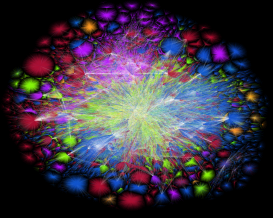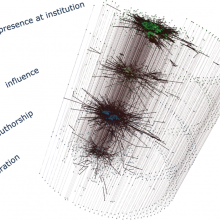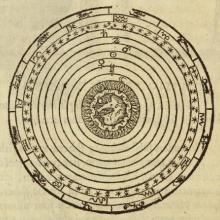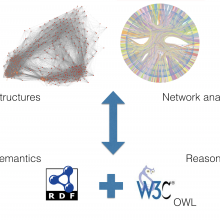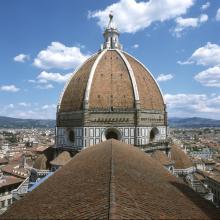Digital and computational methods are becoming an integral part of research in the history of science. These methods are used to access unprecedented numbers of historical sources, to analyze these sources in striking detail, and to publish research results in innovative new formats. Department I builds on these advances, using digital tools to analyze structural relations, to combine heterogeneous data and sources in a semantically meaningful way, and to research spatio-temporal dependencies of historical developments.
Digitality not only challenges existing methods in the history of science but has become a research topic in its own right. The natural sciences and informatics are closely interwoven and there is no doubt that their joint development has led to significant new breakthroughs in science. Digital communication has become the primary medium for knowledge transmission, and the Internet provides access to almost all new knowledge produced today. This has fundamental consequences for the structures and organization of knowledge, which must be understood in conjunction with the technical, social, and conceptual aspects of the Internet and its networks.
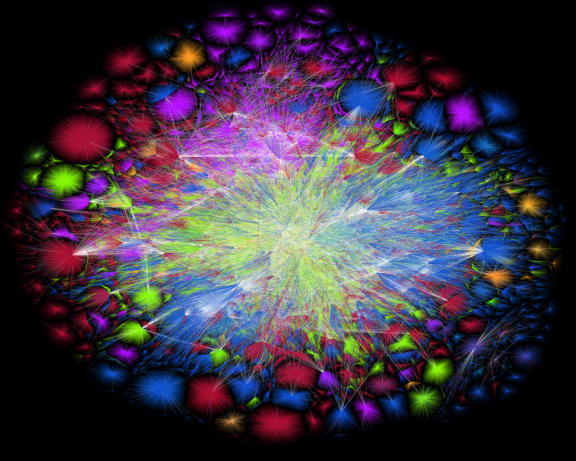
A 2015 Map of the Internet by the Opte Project
Computational humanities are called upon to provide insights into the structures of knowledge in the digital age as well as new methods and tools for doing so. Department I currently focuses on investigating the role and structures of networks for the organization and diffusion of knowledge, and on improving digital publication methods, combining these with interactive tools to enable data-driven research in the humanities.
The integration of heterogeneous sources, which may consist of different data formats, or more importantly, be based on non-compatible data structures, is a challenge that can only be solved by fundamentally rethinking the knowledge structures behind these sources. This involves two aspects: the knowledge of the researchers who created the data and data structures, and the systems of knowledge encoded in the data itself. This is a major challenge for both the history of science and for computer science, and future collaboration must take place if it is to be confronted in a meaningful way.

Transformation of knowledge: from analogue archives to digital research. Left: The Archives of the Max Planck Society. Right: Servers at Google.

